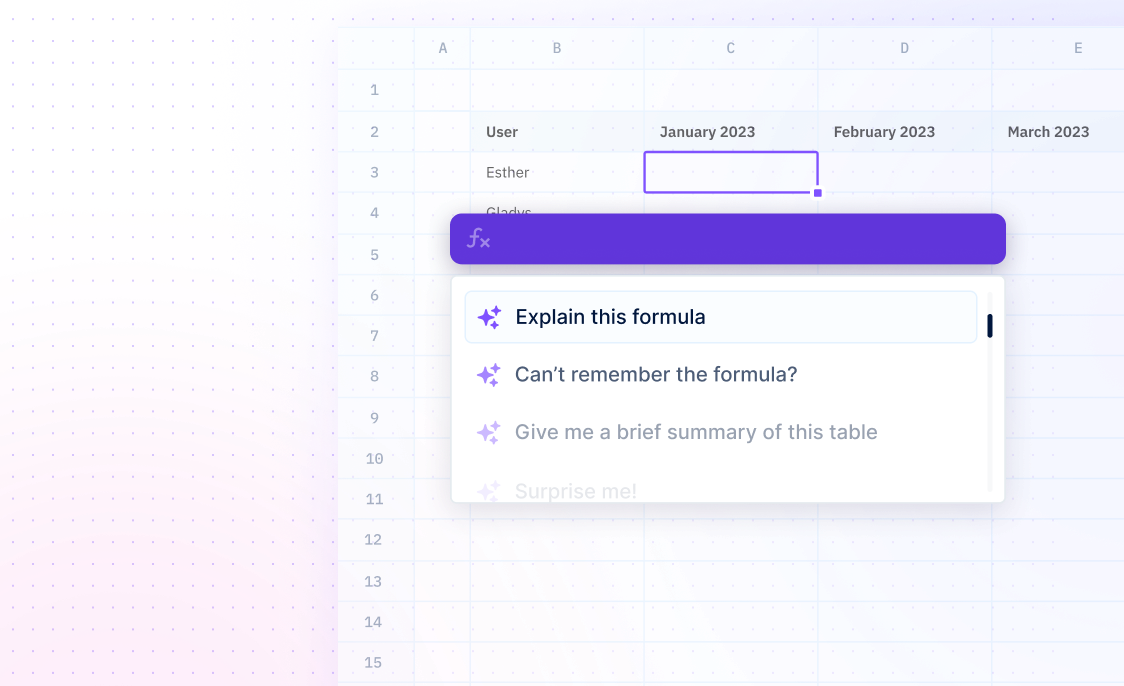
IFNA
Formulas / IFNATrap #N/A errors.
IFNA(value, value_if_na)
- value - required argument to check for the #N/A error value
- value_if_na - required argument to return if the formula evaluates to an error value
Examples
IFNA(VLOOKUP(E5,xtable,2,0),"Not found")The IFNA function can be used to trap errors when using other Sourcetable functions. This example will trap any #N/A errors returned by the VLOOKUP function and return "Not found" if the lookup value is not found in xtable.
IFNA(A2,"No Data Entered")The IFNA function can also be used to fill empty cells with a value, and will return "No Data Entered" if the cell A2 is empty or contains an error.
IFNA(SUMIFS(A2:A10,B2:B10,">0"),"No Positive Values")The IFNA function can also be used to combine multiple functions. For example, this formula will return "No Positive Values" if the SUMIFS function returns an error due to no values being greater than 0.
IFNA(INDEX(A2:A10,MATCH(B1,A2:A10,0),1),"No Match")The IFNA function can also be used to combine multiple functions and arguments, and will return "No Match" if the INDEX and MATCH functions return an error due to B1 not matching any value in A2:A10.
Summary
The IFNA function is a logical worksheet function in Sourcetable which was introduced in 2013. It helps to trap errors and provides an alternative value if a formula throws an #N/A error.
- The IFNA function traps #N/A errors and returns a custom result when a formula throws an error.

